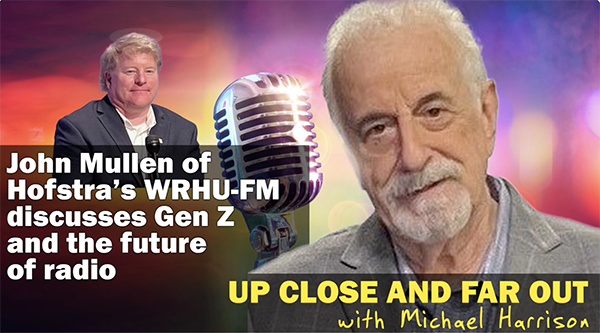SABO SEZ: Somebody had to hire Bill Drake and Jean Shepherd
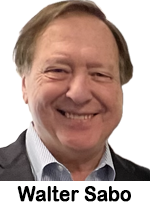
By Walter Sabo
CEO, Sabo Media Partners
A.K.A. Walter M Sterling
Host, WPHT, Philadelphia – daily
Talk Media Network – Sundays
For decades the number one radio station in America in revenue and audience was RKO-owned WOR, New York. RKO also owned a string of some of the nation’s most-stellar radio properties: KHJ, KFRC, KRTH, WHBQ, WAXY, WRKO, WKYS, WFYR and WROR. Oh, and three major market TV stations, a Pepsi bottling plant and Frontier Airlines. The company was controlled by the O’Neil family and operated by chairman Tom O’Neil.
What was O’Neil’s secret?
Tom was a showman. He acquired RKO Films from Howard Hughes in 1953 to solve a problem – his independent TV stations needed movies. He bought as many titles as he could, then sold them to other TV chains and called it—syndication!
He hired programming consultant Bill Drake, personally. He hired Jean Shepherd, Robert W. Morgan, Dr. Don Rose, and, me. I got to know him very well. I was introduced to O’Neil by WOR’s midday star, Jack O’Brian. The O’Brians, Bridget, Kate and Yvonne were the best friends one could have. Today Kate is president of news at the E.W. Scripps Company.
These were Tom O’Neil’s instructions upon hiring me to consult the company for eight years: Pay whatever you have to for a morning host. Hire the very best production person in the city. Make sure our signals are as loud as they can be, get the gadgets. Right, he knew the priorities.
Tom was not a headline grabber or speechmaker. Mr. O’Neil ran his company with a sense of humor and a focus on what was important. He knew his audience share numbers. The daily passenger load on Frontier was at the tip of his tongue as were the midday ratings for WHBQ.
He built the company and then shared management with his son Shane O’ Neil. Shane was also a showman and they were inspirational and visionary. For those eight years I never heard about budgets, sales or expenses. Yet the radio division’s profits grew by many tens of millions of dollars. Imagine!
Walter Sabo has been a C Suite action partner for companies such as SiriusXM, Hearst, Press Broadcasting, Gannett, RKO General and many other leading media outlets. His company HITVIEWS, in 2007, was the first to identify and monetize video influencers.. His nightly show “Walter Sterling Every Damn Night” is heard on WPHT, Philadelphia. His syndicated show, “Sterling On Sunday,” from Talk Media Network, airs 10:00 pm-1:00 am ET, and is now in its 10th year of success. He can be reached by email at sabowalter@gmail.com.



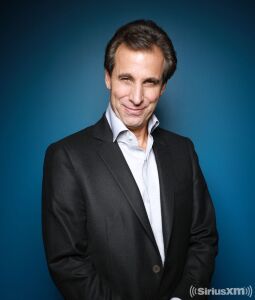 Radio Hall of Famer Christopher “Mad Dog” Russo has signed a new three-year agreement to remain the face and voice of SiriusXM’s popular national all-sports talk channel,
Radio Hall of Famer Christopher “Mad Dog” Russo has signed a new three-year agreement to remain the face and voice of SiriusXM’s popular national all-sports talk channel,  “He’s more popular and dynamic today than he has ever been and we couldn’t be more excited and proud to have him continue his legendary career on SiriusXM.” In 2022 Russo was inducted into the Radio Hall of Fame, recognizing a pioneering on air career that has spanned four decades and made him one of the most prominent and popular hosts in radio history. After 19 years hosting the market-leading “Mike and the Mad Dog” show on WFAN, Russo embarked on the second major chapter of his career with SiriusXM and built his Mad Dog Sports Radio channel into a popular national sports talk platform. (Photo credit Maro Hagopian).
“He’s more popular and dynamic today than he has ever been and we couldn’t be more excited and proud to have him continue his legendary career on SiriusXM.” In 2022 Russo was inducted into the Radio Hall of Fame, recognizing a pioneering on air career that has spanned four decades and made him one of the most prominent and popular hosts in radio history. After 19 years hosting the market-leading “Mike and the Mad Dog” show on WFAN, Russo embarked on the second major chapter of his career with SiriusXM and built his Mad Dog Sports Radio channel into a popular national sports talk platform. (Photo credit Maro Hagopian).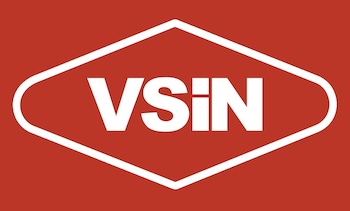 Musburger Media has bought back sports betting network VSiN for an undisclosed price from DraftKings; the latter acquired VSiN in March 2021. VSiN founders Brian Musburger and Bill Adee will again lead it with an eye on moving it forward. They were part of the team launching the multi-platform broadcast and content company in 2017. As Musburger explains, “A lot has changed in the sports betting industry over the past three-and-a-half years, but our original vision for VSiN still holds. We are committed to delivering the most credible, independent information and analysis sports bettors can find anywhere. We truly appreciate the work we’ve done with DraftKings and look forward to continuing to collaborate on future projects. Bill and I couldn’t be more excited about leading VSiN into the future and cementing our position as a trusted authority in sports betting.” DraftKings’ chief marketing officer Stephanie Sherman notes, “DraftKings continues to optimize its investments in content and media to align with the most critical areas and needs of our business strategy, objectives, and goals. We want to thank Brian, Bill, and the entire team at VSiN for a great relationship; we look forward to continuing to advertise on the network.” In addition to iconic sports broadcaster Brent Musburger, VSiN’s current talent roster includes knowledgeable sports betting experts. VSiN’s content is accessible through its 24/7 stream, as well as multiple channels including 300 terrestrial radio stations; a dedicated channel on iHeartRadio and Tune In; YouTube TV; NESN; Rogers’ Sportsnet; AT&T Pittsburgh; and Marquee Sports Network.
Musburger Media has bought back sports betting network VSiN for an undisclosed price from DraftKings; the latter acquired VSiN in March 2021. VSiN founders Brian Musburger and Bill Adee will again lead it with an eye on moving it forward. They were part of the team launching the multi-platform broadcast and content company in 2017. As Musburger explains, “A lot has changed in the sports betting industry over the past three-and-a-half years, but our original vision for VSiN still holds. We are committed to delivering the most credible, independent information and analysis sports bettors can find anywhere. We truly appreciate the work we’ve done with DraftKings and look forward to continuing to collaborate on future projects. Bill and I couldn’t be more excited about leading VSiN into the future and cementing our position as a trusted authority in sports betting.” DraftKings’ chief marketing officer Stephanie Sherman notes, “DraftKings continues to optimize its investments in content and media to align with the most critical areas and needs of our business strategy, objectives, and goals. We want to thank Brian, Bill, and the entire team at VSiN for a great relationship; we look forward to continuing to advertise on the network.” In addition to iconic sports broadcaster Brent Musburger, VSiN’s current talent roster includes knowledgeable sports betting experts. VSiN’s content is accessible through its 24/7 stream, as well as multiple channels including 300 terrestrial radio stations; a dedicated channel on iHeartRadio and Tune In; YouTube TV; NESN; Rogers’ Sportsnet; AT&T Pittsburgh; and Marquee Sports Network.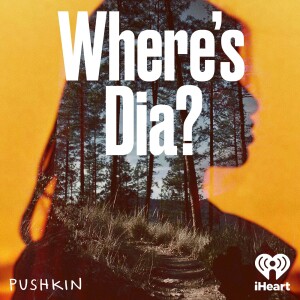 iHeartPodcasts and Pushkin Industries have launched a new six-part true crime podcast that will dive into the 2020 disappearance of Lydia “Dia” Abrams of Idyllwild, CA. Throughout the series, journalist Lucy Sherriff will reveal the culmination of her four-year investigation into Dia’s disappearance, uncovering a tangled web of manipulation, power, estranged families and greed. “Where’s Dia?” will be available to listeners beginning today 7/23), with new episodes posting on Tuesdays. Listen now
iHeartPodcasts and Pushkin Industries have launched a new six-part true crime podcast that will dive into the 2020 disappearance of Lydia “Dia” Abrams of Idyllwild, CA. Throughout the series, journalist Lucy Sherriff will reveal the culmination of her four-year investigation into Dia’s disappearance, uncovering a tangled web of manipulation, power, estranged families and greed. “Where’s Dia?” will be available to listeners beginning today 7/23), with new episodes posting on Tuesdays. Listen now 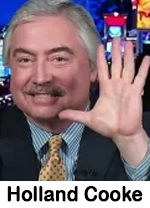

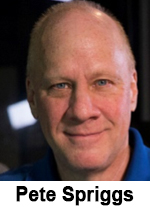 Atlanta radio programmer Pete Spriggs will be among this year’s inductees to the Legends of Georgia Radio Hall of Fame. He commented to The Atlanta Journal-Constitution’s Rodney Ho, “It’s really great to be recognized with so many fantastic broadcasters. It was a blessing to have Cox Radio hand me the keys [to Atlanta news/talk WSB-AM] to work beside such great talent. We all accomplished some great things together.” Spriggs took over as program director of WSB-AM in 2000 and served as director of branding and programming. WSB-AM was the top billing radio station in America for four consecutive years. In 2010, Spriggs managed the addition of an FM signal (WSBB) and the departure of Neal Boortz, as well as bringing in new talent such as Herman Cain, Erick Erickson, Eric Von Haessler, and Mark Arum. The station also acquired Rush Limbaugh from cross-town rival WGST. WSB-AM earned multiple Marconi Awards,
Atlanta radio programmer Pete Spriggs will be among this year’s inductees to the Legends of Georgia Radio Hall of Fame. He commented to The Atlanta Journal-Constitution’s Rodney Ho, “It’s really great to be recognized with so many fantastic broadcasters. It was a blessing to have Cox Radio hand me the keys [to Atlanta news/talk WSB-AM] to work beside such great talent. We all accomplished some great things together.” Spriggs took over as program director of WSB-AM in 2000 and served as director of branding and programming. WSB-AM was the top billing radio station in America for four consecutive years. In 2010, Spriggs managed the addition of an FM signal (WSBB) and the departure of Neal Boortz, as well as bringing in new talent such as Herman Cain, Erick Erickson, Eric Von Haessler, and Mark Arum. The station also acquired Rush Limbaugh from cross-town rival WGST. WSB-AM earned multiple Marconi Awards, 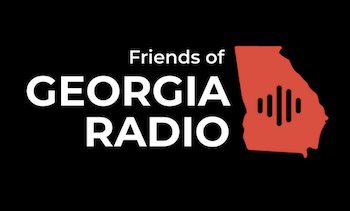 including 2018’s “Major Market Station of the Year.” Spriggs retired in February 2020. Also named as part of the third annual Hall of Fame inductees are Rome Radio Partners managing partner Howard Toole; Steve Craig; Bobby Ellerbee; Bob Helbush; Brady McGraw; and Wendy Williams. The Friends of Georgia Radio will celebrate the inductees into the Legends Hall of Fame next month (8/24) at the Sandy Springs Performing Arts Center.
including 2018’s “Major Market Station of the Year.” Spriggs retired in February 2020. Also named as part of the third annual Hall of Fame inductees are Rome Radio Partners managing partner Howard Toole; Steve Craig; Bobby Ellerbee; Bob Helbush; Brady McGraw; and Wendy Williams. The Friends of Georgia Radio will celebrate the inductees into the Legends Hall of Fame next month (8/24) at the Sandy Springs Performing Arts Center.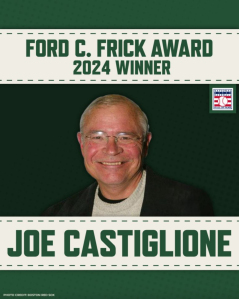 This past Saturday (7/20), Boston Red Sox radio play-by-play announcer Joe Castiglione, whose signature catchphrase is, “Can you believe it,?” was inducted into the Baseball Hall of Fame in Cooperstown, New York. “Joe Castig” received the Ford C. Frick Award for broadcasting excellence. During his acceptance speech, the 77-year-old Hamden, Connecticut native remarked, “Broadcasting baseball is my vocation. It’s the only thing I ever wanted to do, at least since I realized I wasn’t good enough to be a player. At my 50th college reunion, a classmate said to me, ‘You’re the one guy who did exactly what he said he wanted to do,’ and I’m still doing it. What a blessing.” Castiglione’s more than four decades doing Red Sox radio play-by-play marks the longest tenure of any Boston broadcaster on radio or television. In 2004, Castiglione published Broadcast Rites and Sites: I Saw It on the Radio with the Boston Red Sox. Prior to joining the Red Sox broadcasting team in 1983, Castiglione called Cleveland Indians (now Guardians) games (1979) and did some Milwaukee Brewers games two years later.
This past Saturday (7/20), Boston Red Sox radio play-by-play announcer Joe Castiglione, whose signature catchphrase is, “Can you believe it,?” was inducted into the Baseball Hall of Fame in Cooperstown, New York. “Joe Castig” received the Ford C. Frick Award for broadcasting excellence. During his acceptance speech, the 77-year-old Hamden, Connecticut native remarked, “Broadcasting baseball is my vocation. It’s the only thing I ever wanted to do, at least since I realized I wasn’t good enough to be a player. At my 50th college reunion, a classmate said to me, ‘You’re the one guy who did exactly what he said he wanted to do,’ and I’m still doing it. What a blessing.” Castiglione’s more than four decades doing Red Sox radio play-by-play marks the longest tenure of any Boston broadcaster on radio or television. In 2004, Castiglione published Broadcast Rites and Sites: I Saw It on the Radio with the Boston Red Sox. Prior to joining the Red Sox broadcasting team in 1983, Castiglione called Cleveland Indians (now Guardians) games (1979) and did some Milwaukee Brewers games two years later.  Ford Frick was a driving force behind the creation of the Baseball Hall of Fame and helped foster the relationship between radio and baseball. The Hall of Fame has presented the award every year since 1978. To be considered for the award, an active or retired broadcaster must have a minimum of 10 years of continuous major league broadcast service with a ball club, network or a combination of the two.
Ford Frick was a driving force behind the creation of the Baseball Hall of Fame and helped foster the relationship between radio and baseball. The Hall of Fame has presented the award every year since 1978. To be considered for the award, an active or retired broadcaster must have a minimum of 10 years of continuous major league broadcast service with a ball club, network or a combination of the two. During a presentation last week at Beasley Media Group Boston, the Massachusetts Broadcasters Association awarded 11 scholarships totaling $30,000. Scholarship checks were presented by MBA’s immediate past chair/Beasley Media Group vice president/market manager Mary Menna and MBA executive director Jordan Walton. According to Menna, “Beasley Media is proud to have participated in the MBA Student Broadcaster Scholarship for many years. It’s a worthwhile investment in supporting the next generation of radio and television employees.” Walton commented, “The MBA and its members have invested hundreds of thousands of dollars in our future broadcasters. We look forward to watching this group succeed in broadcasting in the years to come.” Menna and Walton delivered brief remarks to the scholarship winners before BMG Boston sports talk WBZ-FM “98.5 The Sports Hub” morning hosts Fred Toucher and Rob “Hardy” Poole spoke to the winners about their paths into broadcasting. Student Broadcaster Scholarships are given to students pursuing a career in over-the-air broadcasting and enrolled at a two or four-year accredited school.
During a presentation last week at Beasley Media Group Boston, the Massachusetts Broadcasters Association awarded 11 scholarships totaling $30,000. Scholarship checks were presented by MBA’s immediate past chair/Beasley Media Group vice president/market manager Mary Menna and MBA executive director Jordan Walton. According to Menna, “Beasley Media is proud to have participated in the MBA Student Broadcaster Scholarship for many years. It’s a worthwhile investment in supporting the next generation of radio and television employees.” Walton commented, “The MBA and its members have invested hundreds of thousands of dollars in our future broadcasters. We look forward to watching this group succeed in broadcasting in the years to come.” Menna and Walton delivered brief remarks to the scholarship winners before BMG Boston sports talk WBZ-FM “98.5 The Sports Hub” morning hosts Fred Toucher and Rob “Hardy” Poole spoke to the winners about their paths into broadcasting. Student Broadcaster Scholarships are given to students pursuing a career in over-the-air broadcasting and enrolled at a two or four-year accredited school. Audacy Philadelphia sports talk WIP “Sports Radio 94” names
Audacy Philadelphia sports talk WIP “Sports Radio 94” names 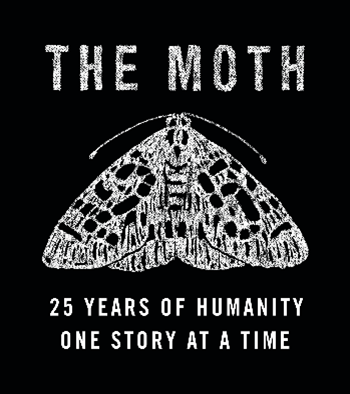 Produced by “The Moth,” Tampa Bay public radio broadcaster WUSF will bring a live storytelling event to the Tampa Theater on October 10. The show will feature a diverse lineup of guests telling personal stories of adventure, struggle, redemption, and creativity. Guests tell their stories without notes in the long tradition of a community gathering around the fire to share their experiences and their culture. University of South Florida-owned WUSF general manager JoAnn Urofsky tells TALKERS, “Events such as this are a key part of our mission to connect residents of Florida with news, information and entertainment that’s meaningful to their lives. These events are also wonderfully fun and a great place for our community to gather and enjoy a great show.” Each show starts with a theme, and the storytellers explore it, often in unexpected ways. Novelist George Dawes Green founded “The Moth” in 1997. The native Georgian wanted to recreate in New York City the feeling of sultry summer evenings when moths were attracted to the light on the porch where he and his friends would gather to tell spellbinding tales. Each story is true and every voice is authentic. “The Moth” has hosted these events in other cities including New York, Los Angeles, Boston, Seattle, and Denver.
Produced by “The Moth,” Tampa Bay public radio broadcaster WUSF will bring a live storytelling event to the Tampa Theater on October 10. The show will feature a diverse lineup of guests telling personal stories of adventure, struggle, redemption, and creativity. Guests tell their stories without notes in the long tradition of a community gathering around the fire to share their experiences and their culture. University of South Florida-owned WUSF general manager JoAnn Urofsky tells TALKERS, “Events such as this are a key part of our mission to connect residents of Florida with news, information and entertainment that’s meaningful to their lives. These events are also wonderfully fun and a great place for our community to gather and enjoy a great show.” Each show starts with a theme, and the storytellers explore it, often in unexpected ways. Novelist George Dawes Green founded “The Moth” in 1997. The native Georgian wanted to recreate in New York City the feeling of sultry summer evenings when moths were attracted to the light on the porch where he and his friends would gather to tell spellbinding tales. Each story is true and every voice is authentic. “The Moth” has hosted these events in other cities including New York, Los Angeles, Boston, Seattle, and Denver.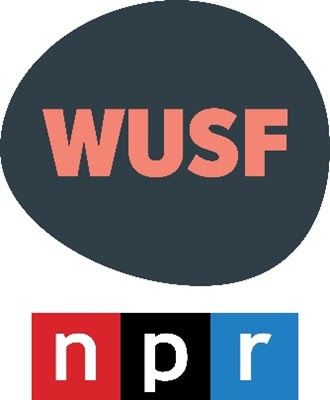
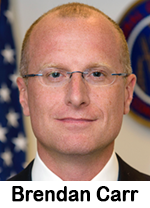 executive-level employee of the FCC to craft and advance a political playbook to influence the presidential election in favor of Donald Trump.” The Democrats say he may have violated ethics laws for federal employees and the Hatch Act. Carr tells Forbes that he sought counsel from FCC ethics officials prior to working on Project 2025 and they “approved of me participating in my personal capacity, which I did.” He also says they approved him using his FCC title in his biography. Forbes reports, “Carr’s chapter on the FCC calls for the agency to ‘change course’ and focus on reining in big tech and promoting national security. The FCC commissioner proposes overhauling legal protections that shield tech companies from liability for content posted on its platforms and supports Congress passing legislation similar to laws in Texas and Florida that punish social media companies for suspending or banning users based on their ‘viewpoints’ – part of broader claims by conservatives that social media companies are biased against them. Project 2025’s FCC agenda also calls for banning TikTok as part of a crackdown on infrastructure from China and calls for tech companies to provide greater transparency.”
executive-level employee of the FCC to craft and advance a political playbook to influence the presidential election in favor of Donald Trump.” The Democrats say he may have violated ethics laws for federal employees and the Hatch Act. Carr tells Forbes that he sought counsel from FCC ethics officials prior to working on Project 2025 and they “approved of me participating in my personal capacity, which I did.” He also says they approved him using his FCC title in his biography. Forbes reports, “Carr’s chapter on the FCC calls for the agency to ‘change course’ and focus on reining in big tech and promoting national security. The FCC commissioner proposes overhauling legal protections that shield tech companies from liability for content posted on its platforms and supports Congress passing legislation similar to laws in Texas and Florida that punish social media companies for suspending or banning users based on their ‘viewpoints’ – part of broader claims by conservatives that social media companies are biased against them. Project 2025’s FCC agenda also calls for banning TikTok as part of a crackdown on infrastructure from China and calls for tech companies to provide greater transparency.” 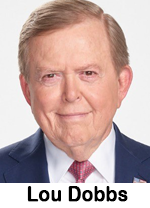 few weeks. Dobbs was part of the debut of CNN in 1980, serving as vice president and host of the “Moneyline” program. He joined FOX Business in 2011 and served there until exiting in 2021 after being named in the Smartmatic defamation suit. During his career, Dobbs also hosted a talk radio show syndicated by United Stations Radio Networks from 2008 through 2012. He also hosted the “Lou Dobbs Financial Report” syndicated by Salem Radio Network. The program “Lou Dobbs Tonight” won an Emmy in 2004, and Dobbs won a George Foster Peabody Award for his coverage of the 1987 stock market crash.
few weeks. Dobbs was part of the debut of CNN in 1980, serving as vice president and host of the “Moneyline” program. He joined FOX Business in 2011 and served there until exiting in 2021 after being named in the Smartmatic defamation suit. During his career, Dobbs also hosted a talk radio show syndicated by United Stations Radio Networks from 2008 through 2012. He also hosted the “Lou Dobbs Financial Report” syndicated by Salem Radio Network. The program “Lou Dobbs Tonight” won an Emmy in 2004, and Dobbs won a George Foster Peabody Award for his coverage of the 1987 stock market crash. following the retirement of Andy Lohman. Williams is serving as market manager for the company’s Fairbanks, Alaska operations. iHeartMedia division president Dan Lankford says, “I have had the privilege of working with Kim over the past four years while she served as market president for Fairbanks. I’m excited to see Kim’s passion and experience expand to all of the iHeartMedia stations across the entire Alaska and Hawaii area.”
following the retirement of Andy Lohman. Williams is serving as market manager for the company’s Fairbanks, Alaska operations. iHeartMedia division president Dan Lankford says, “I have had the privilege of working with Kim over the past four years while she served as market president for Fairbanks. I’m excited to see Kim’s passion and experience expand to all of the iHeartMedia stations across the entire Alaska and Hawaii area.” Scottish Rite Auditorium in Collingswood, New Jersey on September 12th featuring Donald Trump Jr., EVP of the Trump Organization. The event will be moderated by WPHT talk host Dom Giordano and the station says the conversation will cover the presidential race, the state of our union and his worldview as a conservative firebrand.
Scottish Rite Auditorium in Collingswood, New Jersey on September 12th featuring Donald Trump Jr., EVP of the Trump Organization. The event will be moderated by WPHT talk host Dom Giordano and the station says the conversation will cover the presidential race, the state of our union and his worldview as a conservative firebrand.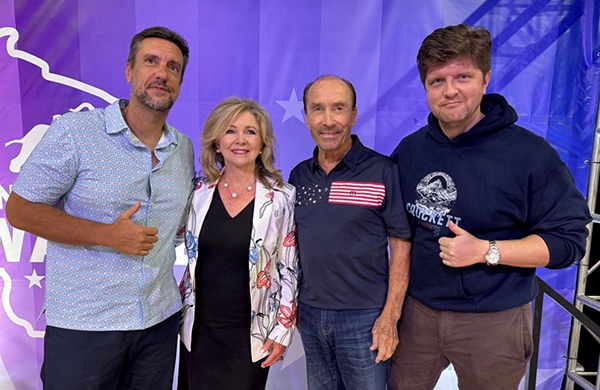
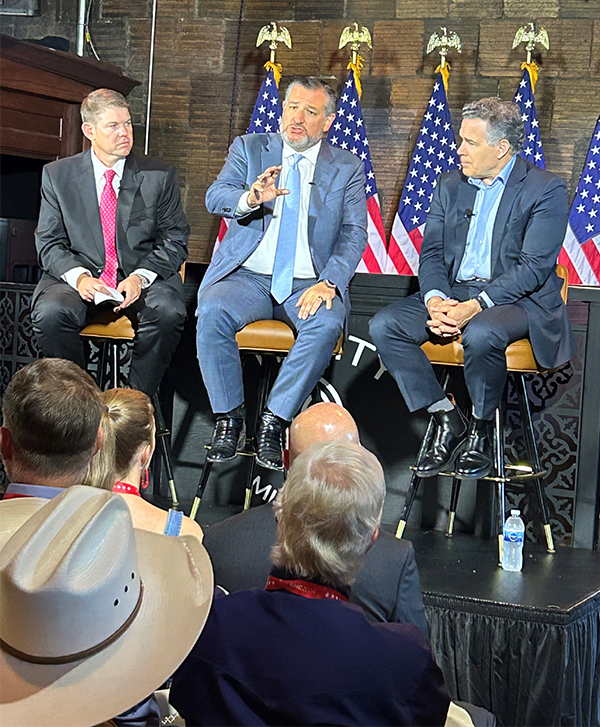
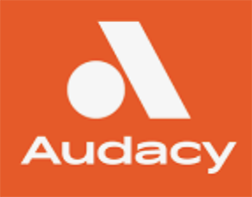 township of Lower Merion with regard to its former headquarters in Bala Cynwyd, Pennsylvania. The original amount to be paid by Audacy was $1.4 million however that figure was later deemed incorrect and now the company agrees to pay the township $2 million. Audacy is still awaiting final approval from the FCC to be able to operate its radio stations as the new Audacy.
township of Lower Merion with regard to its former headquarters in Bala Cynwyd, Pennsylvania. The original amount to be paid by Audacy was $1.4 million however that figure was later deemed incorrect and now the company agrees to pay the township $2 million. Audacy is still awaiting final approval from the FCC to be able to operate its radio stations as the new Audacy. Now and Up First in the #1 and #2 spots, respectively, and NBCUniversal News Group’s Dateline NBC at #3. Movement of note for news/talk radio-related podcasts includes Cumulus Podcast Network’s “The Dan Bongino Show” rising one place to #6; iHeart Audience Network’s “The Clay Travis & Buck Sexton” show moves three spots to #23; and Cumulus Podcast Network’s “The Shawn Ryan Show” advances 13 places to the #26 rank.
Now and Up First in the #1 and #2 spots, respectively, and NBCUniversal News Group’s Dateline NBC at #3. Movement of note for news/talk radio-related podcasts includes Cumulus Podcast Network’s “The Dan Bongino Show” rising one place to #6; iHeart Audience Network’s “The Clay Travis & Buck Sexton” show moves three spots to #23; and Cumulus Podcast Network’s “The Shawn Ryan Show” advances 13 places to the #26 rank. 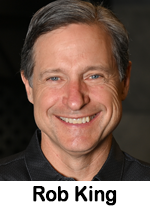 since 2014 and a part of the Pittsburgh sports media landscape for nearly 25 years. He takes over for Bill Hillgrove, who retired after serving for 30 seasons. King is joined in the booth by color analyst Craig Wolfley. King says, “The Steelers hold a special place in this community and across the country. I am thankful to Art Rooney II, the Steelers and iHeartMedia for giving me this incredible opportunity to be a meaningful part of one of the greatest organizations in professional sports. I look forward to getting started, doing the job well and bringing the enthusiasm of the games to people around the world. I could not be more excited.”
since 2014 and a part of the Pittsburgh sports media landscape for nearly 25 years. He takes over for Bill Hillgrove, who retired after serving for 30 seasons. King is joined in the booth by color analyst Craig Wolfley. King says, “The Steelers hold a special place in this community and across the country. I am thankful to Art Rooney II, the Steelers and iHeartMedia for giving me this incredible opportunity to be a meaningful part of one of the greatest organizations in professional sports. I look forward to getting started, doing the job well and bringing the enthusiasm of the games to people around the world. I could not be more excited.”